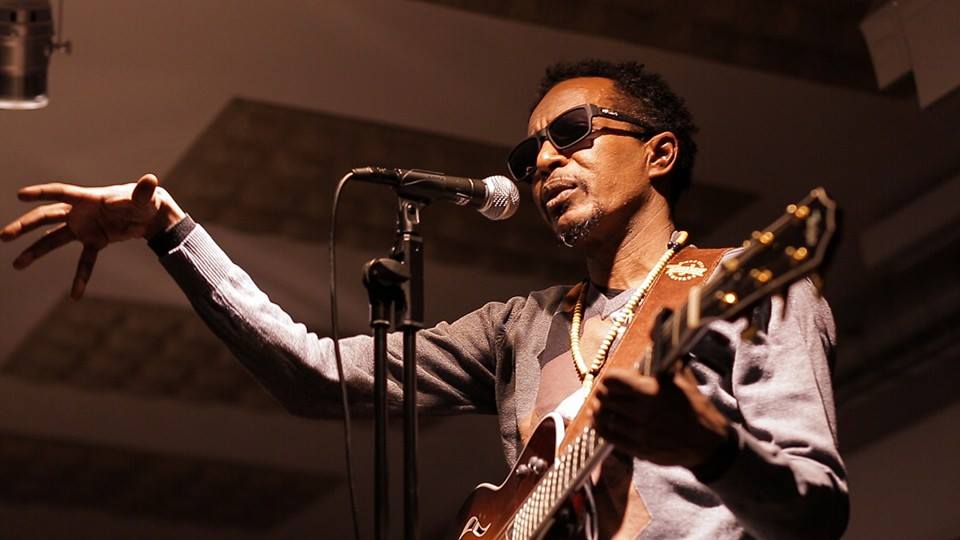
Singer Abu Zar Abdul Baqi Calls on Sudanese Artists to Combat Hate Speech
moatinoon
As singer Abu Zar Abdul Baqi prepares to participate in a concert supporting war victims in Sudan today, Sunday, in the Belgian capital, Brussels, he has called on Sudanese artists worldwide to use arts, singing, visual arts, music, and theater to promote peace and combat the hate speech and racism resulting from the ongoing war in Sudan.
Abu Zar says, "Art can make a significant contribution to uniting people around a set of human values that call for reconciliation, peace, the establishment of good civil governance, and the enhancement of stability and sustainable development."
Abu Zar Abdul Baqi has a long and illustrious history of singing and advocating for peace, starting at a young age during his university days with the band "Balsam," before gaining fame as one of the founders of the renowned band "Akad al-Jalad" in the late 1990s. He abandoned his architectural engineering studies and continued his solo career with the "Rainbow Songs" project, which brought together musicians from all over Sudan to promote human rights through song.
Abu Zar released his first solo album, "Sabahak Rabah," in 2007 before moving to Cairo, where he continued his activities and established the "Democratizing Music" project in 2009, in collaboration with other Sudanese and Egyptian musicians, as a forum for dialogue that included many events and performances, including the song "Salam Darfur." He has been residing in Harstad, Norway, the city of musicians, since 2014, and is active in a series of local and international events through concerts, talks, and school visits about his peace projects and the situation in Sudan.
Abu Zar is set to be at the heart of the "Stand up for Sudan Festival" on Sunday, May 19, organized by the Sudanese-Belgian organization Sudart in Brussels, featuring artists from Sudan, Belgium, the Netherlands, and Sweden.
"CITIZENS" interviewed him and conducted the following conversation:
The Importance of the Arts’ Message at This Stage
"The message of the arts at this stage is the only means we can use to communicate with each other as Sudanese and, at the same time, reflect what is happening in Sudan to the world around us. The basic idea is that our culture itself is laden with hate speech. Before people fight with guns and weapons, we fight each other with derogatory chants and songs, and Hakkamat (traditional female praise singers) have played a negative role in this scene. However, they are not the only ones; hate speech is embedded in our cultural content. Now, it is difficult for us as artists and creatives to act centrally. It is better for everyone to contribute from their place and community, as if we do not know how to serve Sudan from where we are, we will not know how to serve it."
The Role of Hakkamat in Peace
"The Hakkama fills the Thatcher with fuel, but she cannot look into the eyes of orphans, a Hakkama believes that if she does not sing to encourage the youth to fight, others will come to kill them. The cycle of violence and counter-violence will not stop unless the Hakkamas song changes from promoting war to promoting peace; otherwise, the country will be filled with orphans. This is my message to all my sisters, the Hakkamat. This is the time to stop the bloodshed. We have enough tools for popular justice to achieve reconciliation and peace in our communities. But now, the sound of battle prevails, which is a loss for everyone. Genocide is a crime against humanity, and everyone is protected wherever they are. Therefore, the call is to all artists, starting with the Hakkamat."
Past Experience with Hakkamat
"I had an experience with the Hakkamat between 2006 and 2008, singing for peace instead of war. We started and had some success, but then the events of the International Criminal Courts indictment of Bashir happened, and the organizations supporting the idea were expelled, and the project stopped. But I still believe that hate speech must be confronted by all artists at all levels, from the popular singer to diaspora artists. I call through you to all parties to the conflict that democracy has a god who protects it, brings it, and takes it, but people need their homes. Those who have been displaced from Al-Geneina should return to Al-Geneina, and those who have been displaced to Port Sudan should return to their city. There is no more time now for political or ethnic polarization. This is a futile war, and the victor is a loser. The responsibility of the Sudanese people now, like other peoples in our situation, is to raise our voices to hear the voices of our people."
A Call to Artists and Creatives
"I am from the Akad al-Jalad school. It sought to unite the Sudanese people through the arts but failed to unite itself, which places responsibilities on us to reflect cooperation among us as Sudanese.
Now, the priority is for rapid humanitarian response and aid. We all, as Sudanese everywhere, should shout Save Sudan. The same Sudanese communities that are fighting inside Sudan coexist in the diaspora, and we must reflect the experience we live to potential refugees and displaced persons. In the end, no one will come to help us if we do not help ourselves, especially given the global neglect of the Sudan issue."

